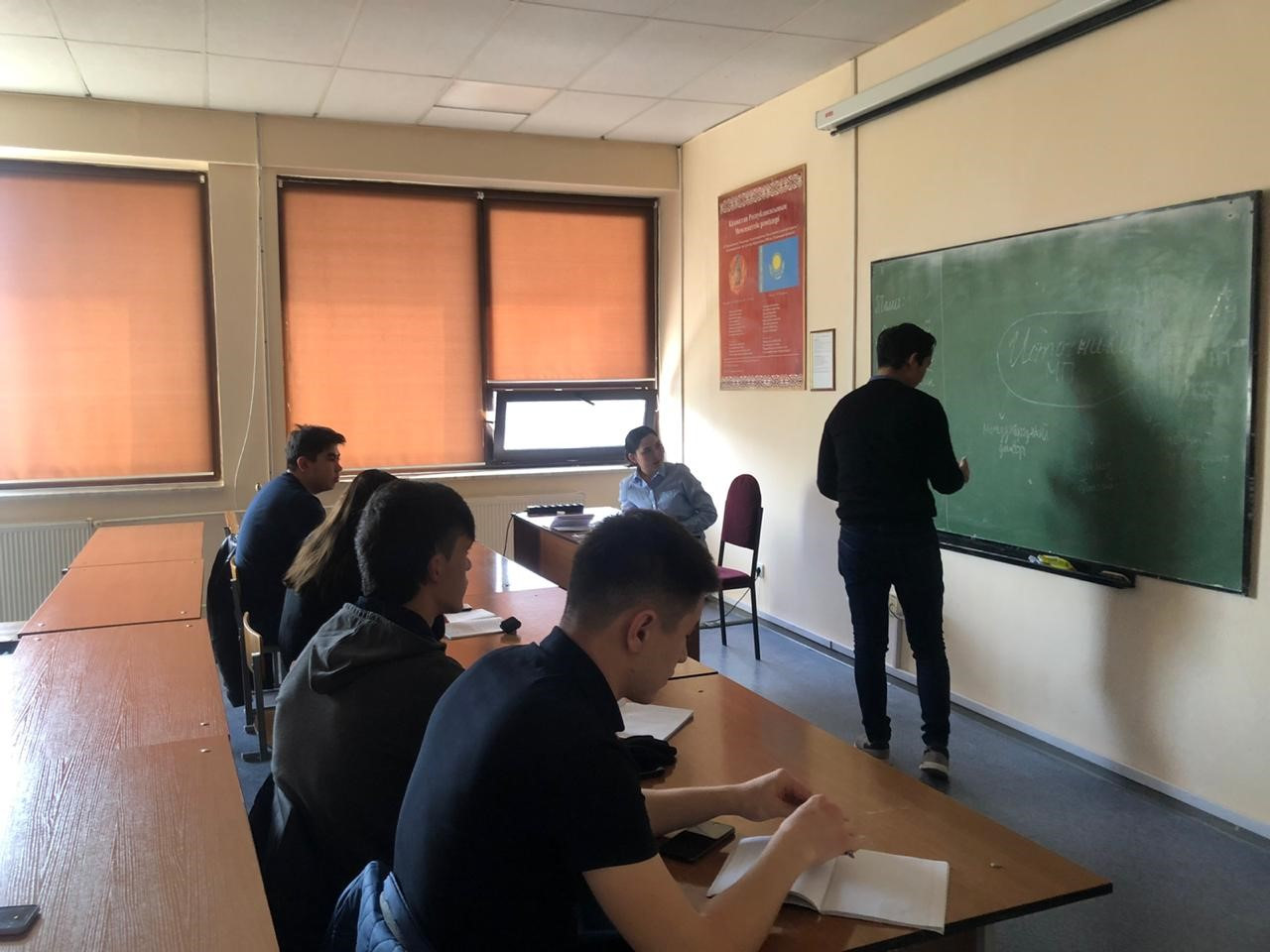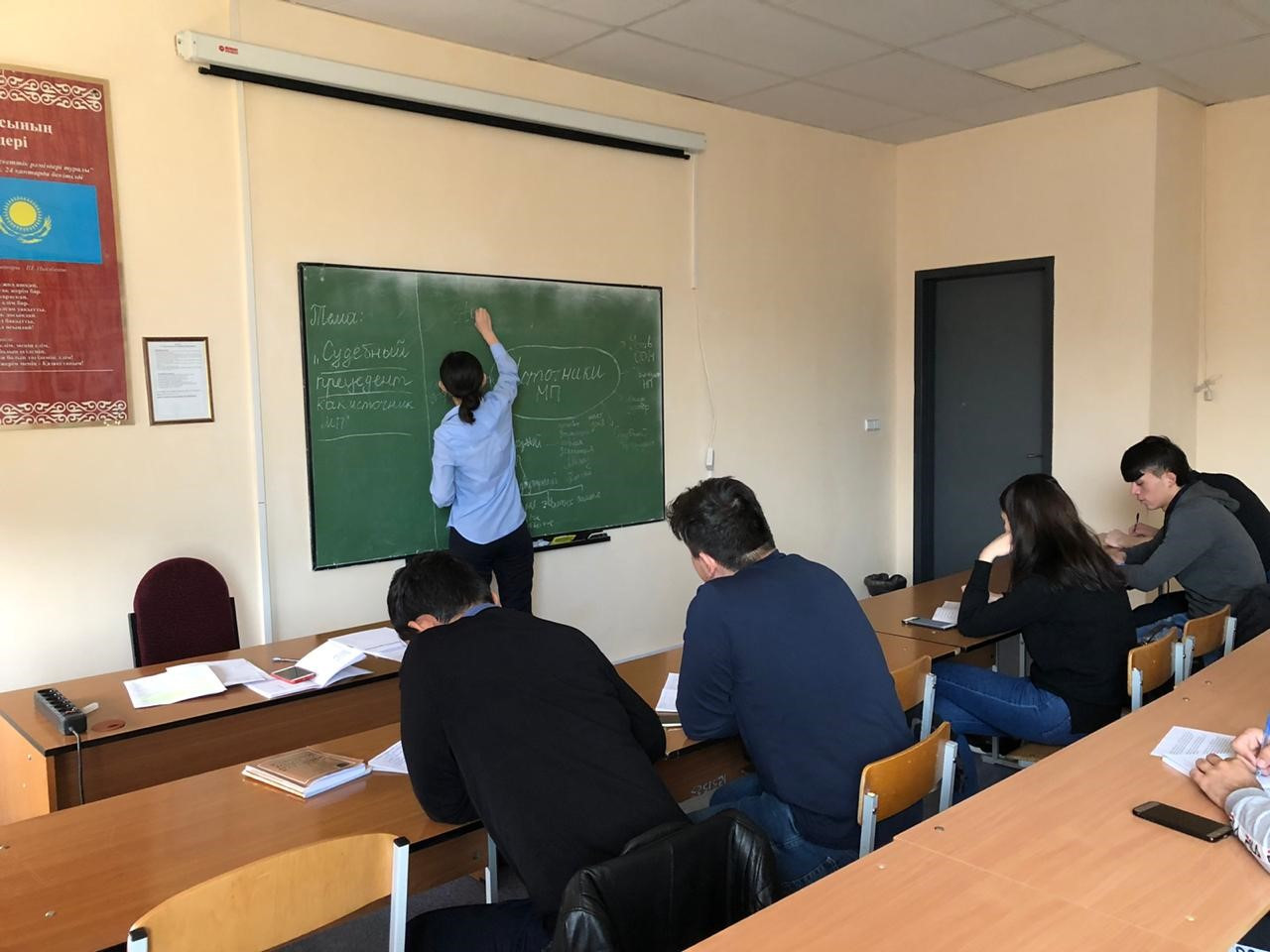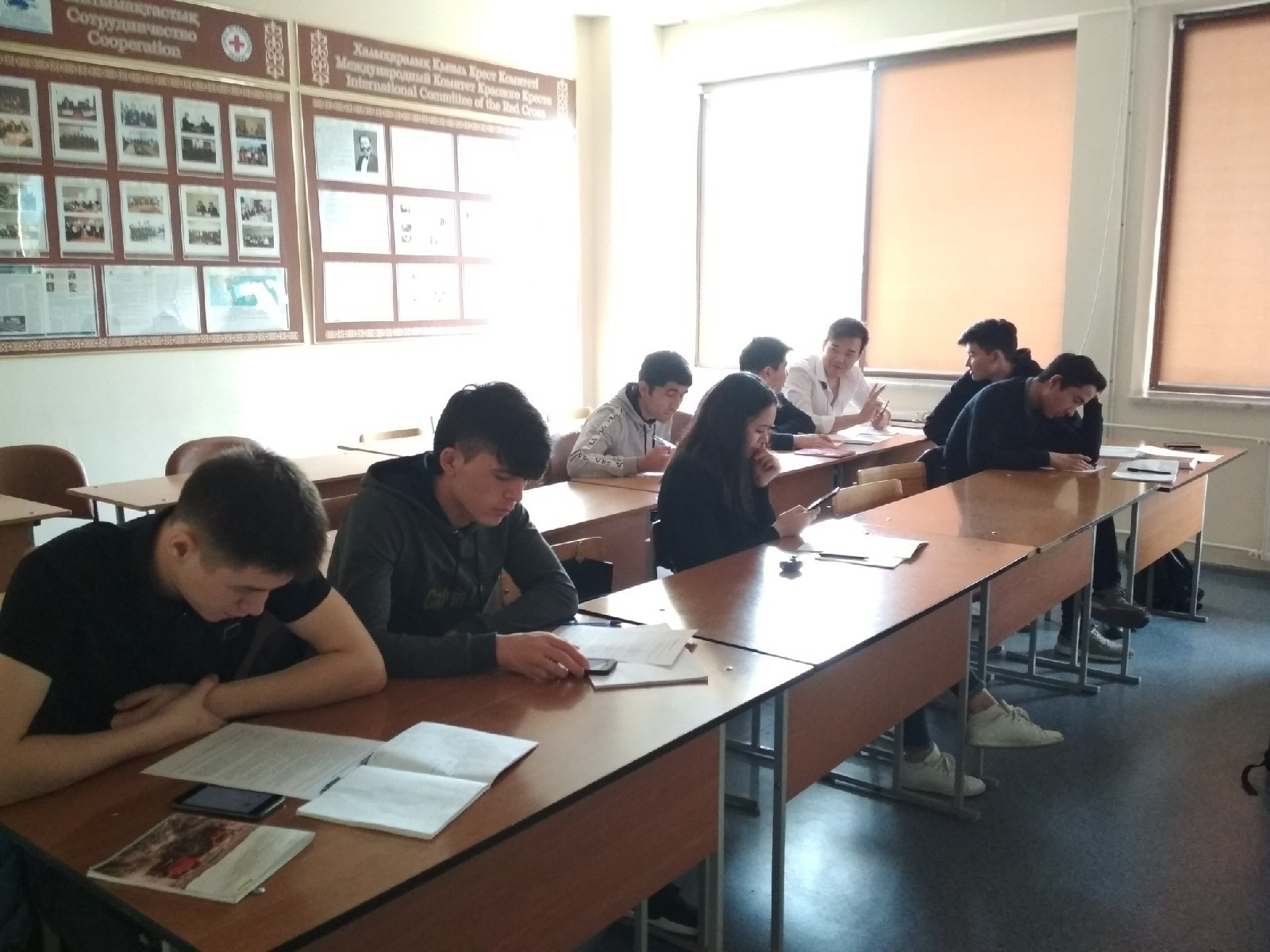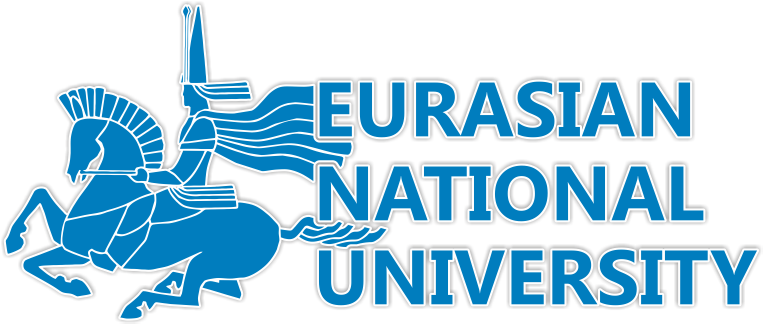As part of the pedagogical practice, on October 30, 2019, there was an open lecture by the 2nd year Master programme student of the specialty “International Law” of the Faculty of Law, Yermekova Aigerim. Topic of the lecture was “Judicial precedent as a source of international law”.
The event was attended by teachers, undergraduates, students of the department of international law.
The lecture began with the students recalling previous topics, namely the concept and types of sources of international law, signs of sources of international law, the concept of international treaties, types of international treaties, the procedure for concluding international treaties, Vienna Convention on the Law of Treaties, 1969.

At the same time, Yermekova Aygerim used the cluster method, that is, all students of the group in order of priority went out to the board in an organized manner, commenting and supplementing the scheme on the sources of international law.Thus, the task of repeating the previous topics related to the new topic has been achieved.
The lecture discussed and clarified issues related to the definition of “judicial precedent”, the signs and elements of judicial precedent, the place and role of judicial precedent in various legal systems.

In order to understand whether a judicial precedent is a source of international law, whether each judicial decision is a judicial precedent, it was necessary to formulate the concept of “judicial precedent” and determine its features. During the discussion with students to answer these questions, the lecturer proposed several definitions of this concept, referring to the work of L.P. Anufrieva, L.B. Alekseeva, V.S. Nersesyants. Thus, the signs and elements of judicial precedent were identified.
The debate about the role of judicial precedent as a source of law in Romano-German and Anglo-Saxon legal systems were very interesting for students.
It is worth noting that the listeners were particularly interested in analyzing the case-law of the European Court of Human Rights. The result of the review analysis was the assertion that the recognition of the case-law of the Court as a source of law is officially confirmed both in the decisions of the Court and in other international documents.

To consolidate the lecture material, students were asked to complete individual tasks on the cards and formulate their understanding of judicial precedent.
Following an open lecture, during a lively discussion, topical issues about the sources of international law were raised.


